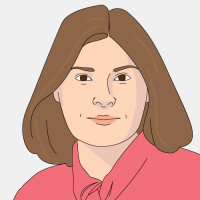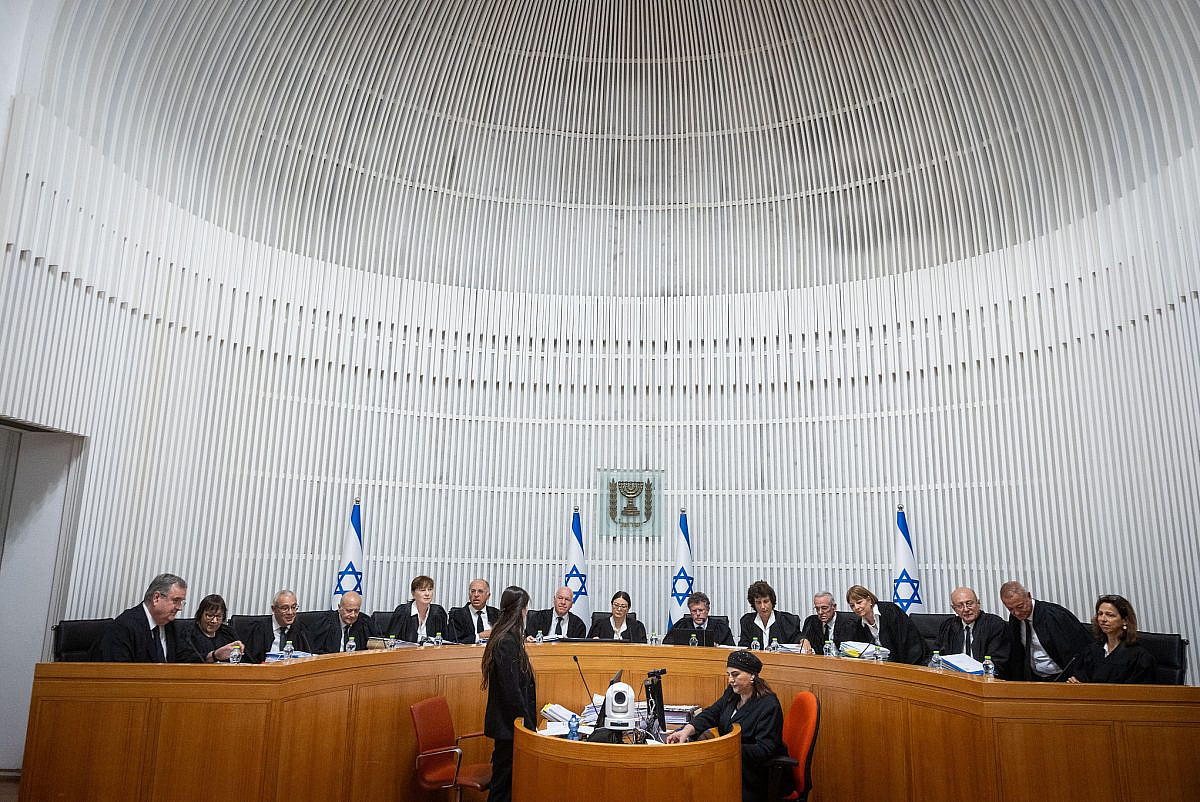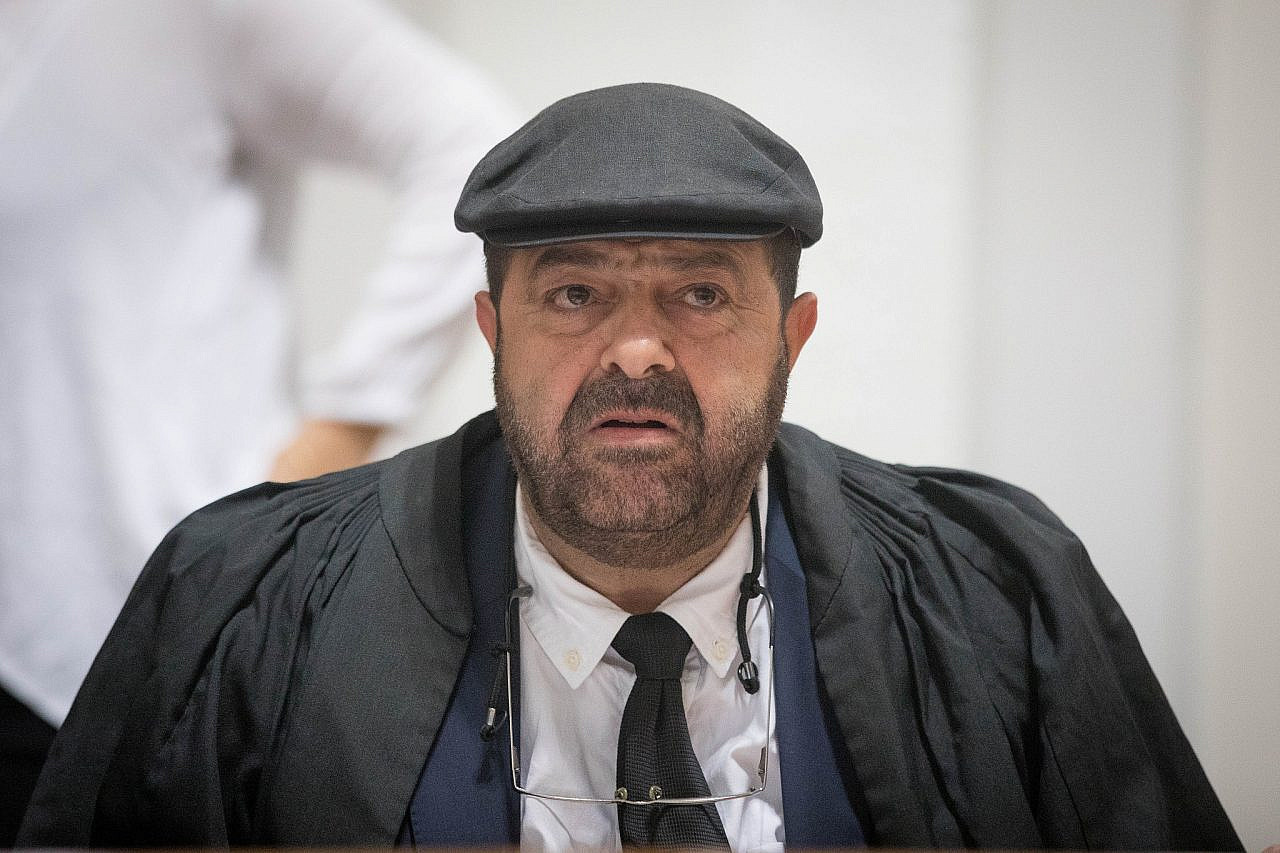On Sept. 12, Israel’s High Court conducted a marathon hearing lasting over 13 hours to discuss the petitions against the amendment of Basic Law: The Judiciary. This amendment, which the Knesset passed in July, abolished what is known as the “reasonableness standard,” which enables the High Court to strike down certain government appointments and decisions, including those of ministers and public officials. The High Court has invoked this doctrine sparingly in the past, but several of the cases in which it has intervened have related to Palestinians and the occupation.
Amid the intensive local and international media coverage of the hearing, however — streamed live on all Israeli TV stations, across radio stations, and on news websites — a significant voice was absent from the array of petitioners. Although there was one Arab justice on the panel of judges, Justice Chaled Kabub, we were missing a different voice — the voice of a Palestinian human rights organization that stands up for and speaks on behalf of all Palestinians.
The morning after the hearing, I reached out to Hassan Jabareen, a prominent human rights advocate and the general director of Adalah, a Palestinian human rights organization and legal center based in Haifa. We discussed why Adalah was absent from the High Court hearing, and the implications of this decisive debate for Palestinians.
The following conversation has been edited for length and clarity.
How come you didn’t appear in front of the High Court during the 13-hour hearing?
This is the first case in the last 20 years dealing with high constitutional rights that affect Palestinians and all citizens in which Adalah was not part of the hearing physically. Adalah has always been present at the High Court during these high constitutional cases, and in most cases we have even led the hearings. But this time, we decided that the Association for Civil Rights in Israel (ACRI) would submit the joint petition against the cancellation of the reasonableness standard on behalf of 38 human rights and civil society organizations.
It was a dilemma for us. On one hand, we had to be part of it because this law affects human rights, mainly those of Palestinian citizens of Israel and Palestinians under occupation. On the other hand, the debate in Israel became very focused on Israeli-Jewish aspects, with militaristic undertones. The protest movement [against the judicial overhaul] created a collective “we”: “our legal system,” “our law.” During the hearing, this kind of language was dominant from both parties. We couldn’t align with this narrative.
Additionally, we disagree with the main slogan of the protest movement that the Israeli judiciary is the defender of human rights because, in our experience, we have seen the High Court uphold all the racist laws against Palestinians: the ban on family unification (which it upheld twice), the “Nakba Law,” and the “Admissions Committees Law.” All of these are racist against Palestinians, and the High Court dismissed our petitions and confirmed the laws.
So the solution for us was to be represented by ACRI. We rely on ACRI as a professional organization sensitive to the voices of different groups, including Palestinians.
Is this hearing really historic?
I believe it is, primarily because it follows a long public struggle — including 37 weeks of demonstrations — and a lengthy public debate that divided the country into two camps: one supporting the judiciary and one against it. Despite the success of the protest, it couldn’t prevent the passing of the law. Now the court will decide the winner of this debate.
Additionally, the fact that the High Court may decide to cancel a Basic Law is itself historic. We cannot forget as well that, for the first time, the attorney general opposes this Basic Law, and there’s a sense that the High Court may intervene in [other amendments to] Basic Laws.
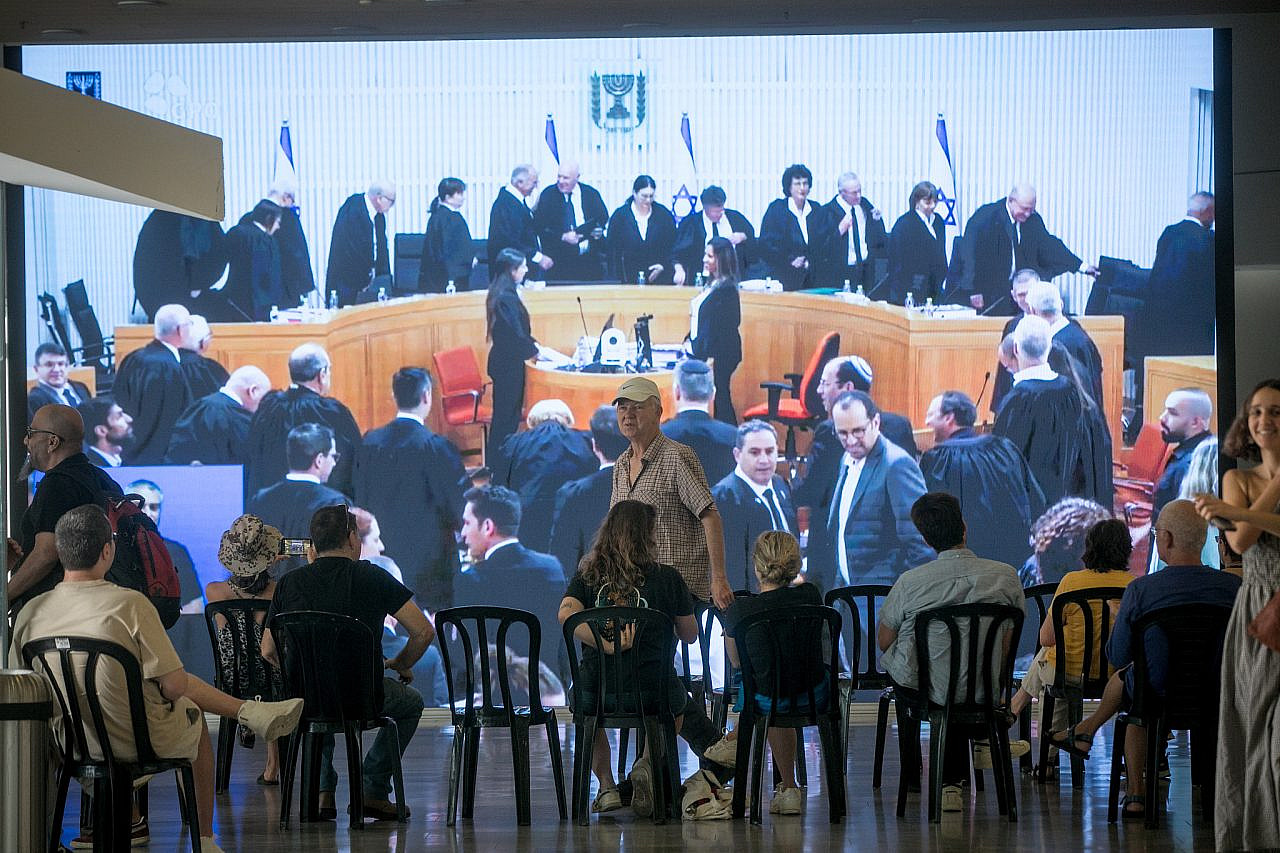
The hearing was also unique because it involved all 15 justices for the first time in the Court’s history. In the past, when the High Court discussed the constitutionality of Basic Laws like the [Jewish] Nation-State Law, it had 11 justices, but it was clear the Court wouldn’t intervene. And, in fact, the 10 Jewish-Israeli justices upheld the law and the only judge who was against it was the Arab justice, George Kara. This time, there’s a feeling that the court may intervene, which is why all 15 justices are involved.
Can you say more about why all 15 judges are involved this time round?
It is because the debate is about the court’s neutrality. The right wing claims the court is not neutral, and the choice of the chief justice [Esther Hayut] to decide the number of justices on the panel became part of the debate. Having all 15 justices ensures neutrality, as selecting fewer might be seen as a political move. I think [Hayut] sent a message of power from the court, that she is not worried about the decision.
This may be the last time I witness eight of the 15 justices belonging to the liberal camp. Three liberal judges (Chief Justice Esther Hayut, Deputy Justice Uzi Vogelman, and Anat Baron) will leave soon, and this government will influence their replacements. This might be the last rational hearing I witness. And it was, I must say, very rational and professional.
What did you make of the debate between Religious Zionist Party MK Simcha Rothman, who’s been one of the architects of the overhaul, and the justices — especially with regard to the possibility of this government passing a law that prohibits Palestinian citizens from voting?
The Religious Zionist Party is the party of the settlers. It is the party most ideologically opposed to the courts, and the engine behind changing the status of the judiciary. It wants to work without the law as an obstacle to its [policies], and it has the support of Justice Minister Yariv Levin. It wants to expand settlements, control the Palestinians, and pass numerous racist laws against Palestinian citizens of Israel.
This is why Rothman is against any intervention by the Court on Basic Laws. When one of the justices asked what [would happen] if the government were to pass a law that prohibits Arab citizens from voting, [Rothman’s] answer was that the Court does not have the authority to intervene. He could have answered that no one would think of limiting the rights of the Palestinians [in this way], but his very ideological answer was that even in that case, the Court does not have the right to intervene.
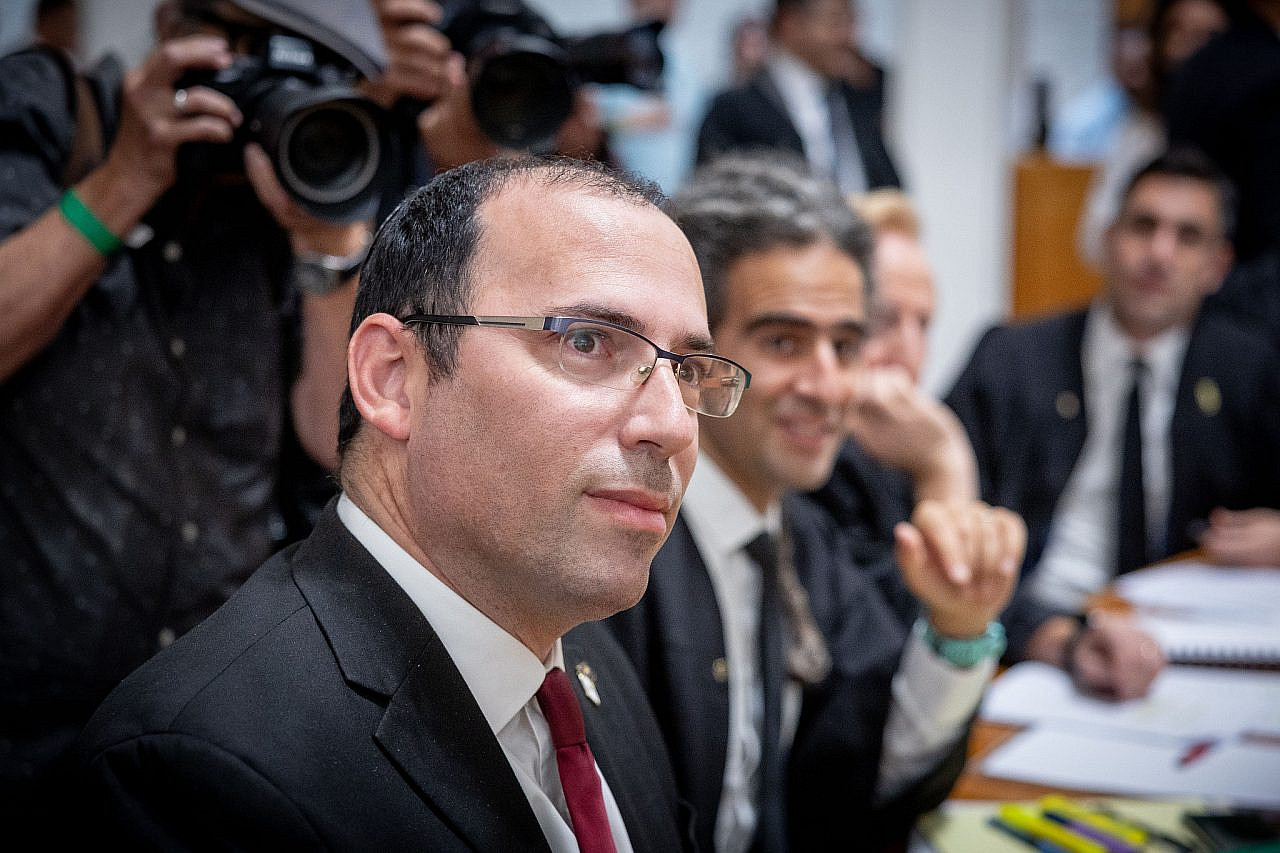
When Rothman was asked about passing laws without having judges examine their legality, he argued that “the only group that will examine [laws] is the people, the voice of the people, the political will of the people.” But, of course, this is fiction. Fascists and populists use the term “the will of the people” as an answer to all the hard questions. But if they pass a law that prohibits Palestinians from voting, they are not going to ask the people in a referendum. If they pass laws about gender segregation, they are not going to ask the people.
What is your expectation regarding the Court’s final decision?
What we know is that eight of the justices — a majority — are against the law: Hayut, Isaac Amit, Vogelman, Daphne Barak-Erez, Baron, Ruth Ronnen, Ofer Grosskopf, and Kabub. In political cases, the moment of delivery of the Court’s decision is crucial. The timing will affect the decision itself and many factors could influence it in the coming months, such as [other] urgent cases. So how the Court juggles between those priorities in the coming two-to-three months is a big question.
Most read on +972
The Court might interpret the law narrowly to weaken it without canceling it, satisfying both the right-wing and liberal camps. The judges adopted a similar strategy when considering the Nation-State Law, passed by a [Benjamin] Netanyahu-led government in 2018, which formally prioritized Israel’s Jewish character over its democratic one. The Court allowed the law to stand, but narrowed its reach, ruling that it could not be used to deny Palestinians their rights as citizens.
[The justices] have different ways to express their objection to the law, and that depends on the political moment of delivering that decision. Maybe the government and the opposition will reach a compromise and the Court won’t need to decide. Within the Likud party, there are voices calling to amend the law. So it’s very difficult to predict the outcome.

